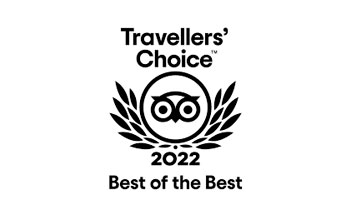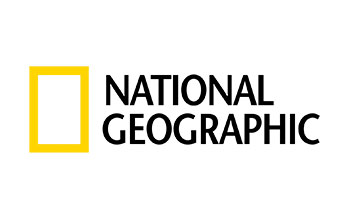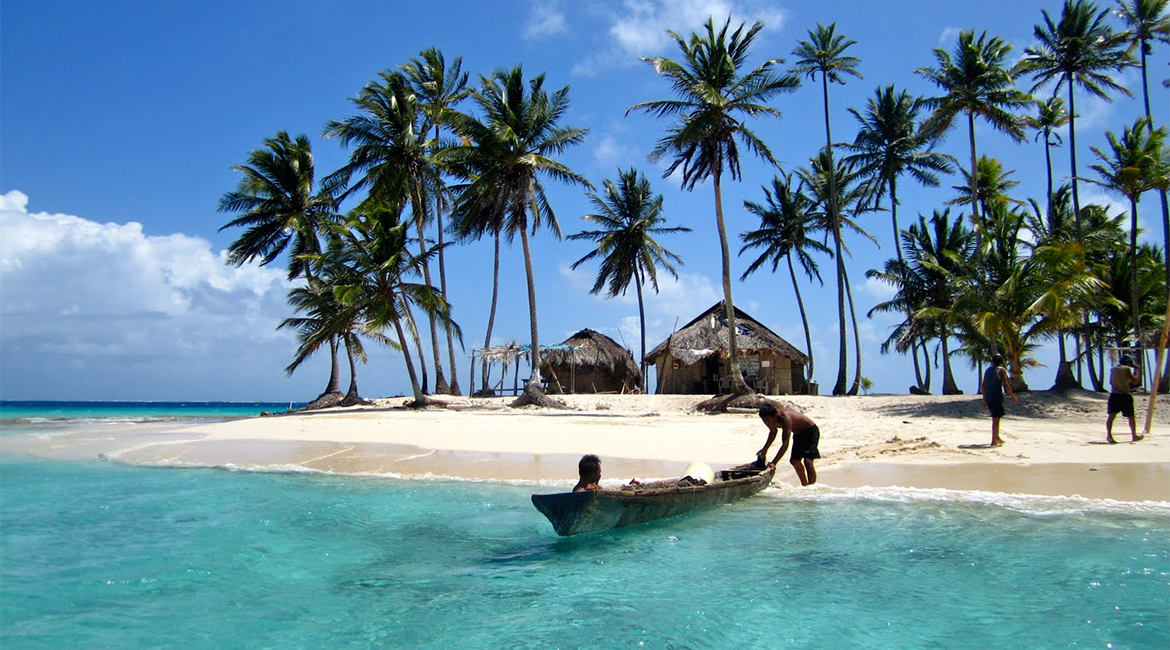
Responsible Tourism
with San Blas Adventures
Because there are different definitions and interpretations of responsible tourism, the best we can give you is our understanding of responsible tourism (which some people also refer to as ethical tourism or sustainable tourism). At its most abstract, responsible tourism is an ethos or attitude where tourism companies and their customers recognise the potential damage or disturbance tourism could cause local people and put measures in place to ensure this doesn’t happen. Put simply, tourism can sometimes cause problems for local people and responsible tourists don’t want this to happen. Taken a step further, responsible tourism also ensures that a fair share of the money generated by tourism
reaches the local people in the areas tourists are visiting.
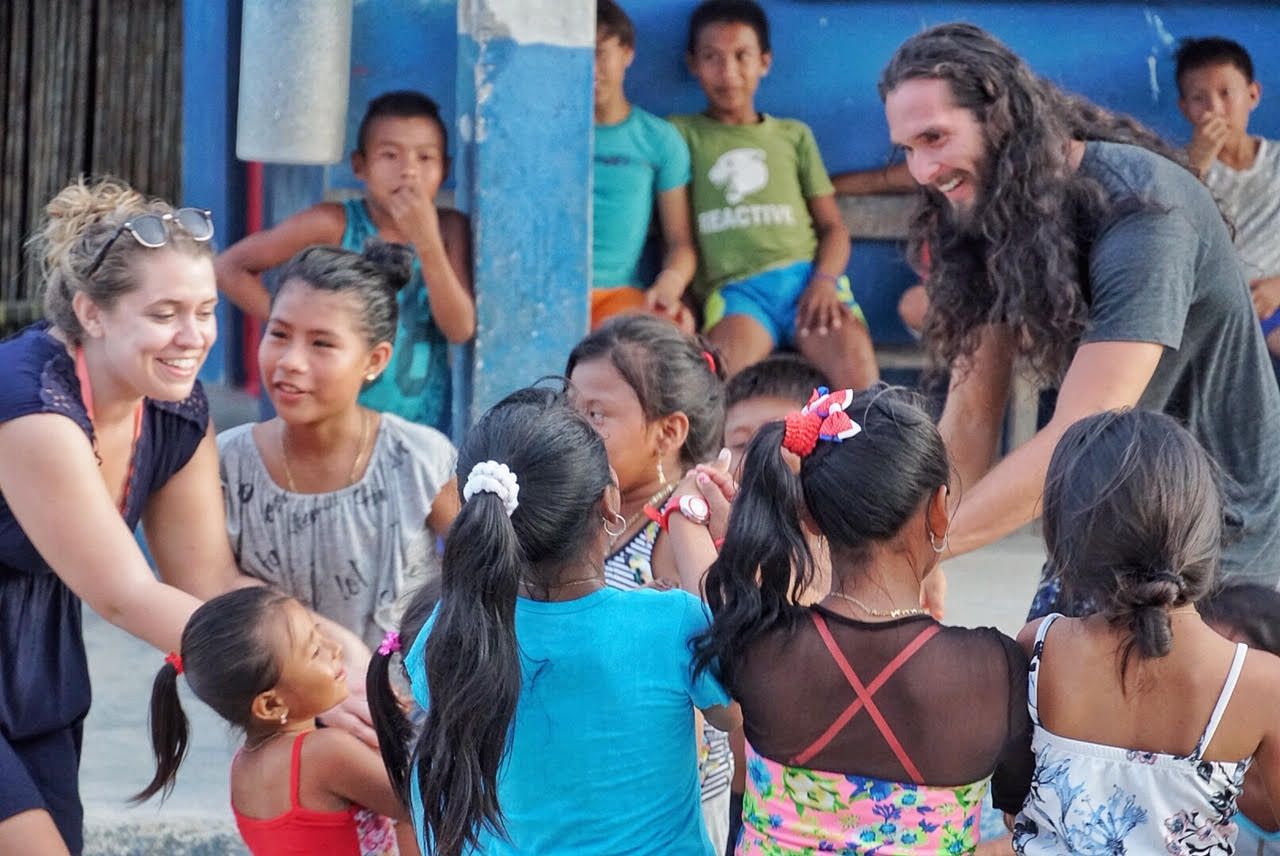
What is responsible tourism?
After many years operating in San Blas we have developed very close relationships with the local indigenous community, the Kuna. Being able to share this experience with you, and share you with them, is an integral part of our trip and what really sets us apart from other tours.
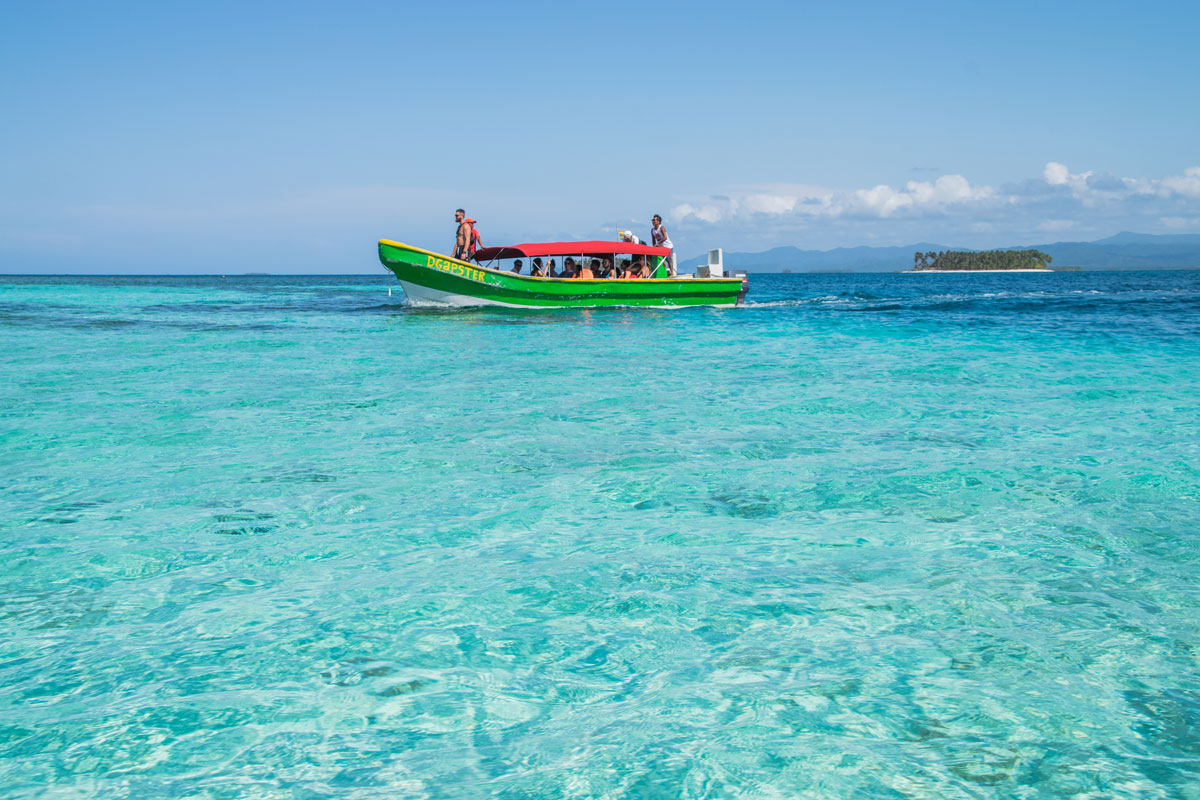
Why are people interested in responsible tourism?
Responsible tourism has become very popular in recent years and it has come in response to the ever-growing tourism industry (which is really various different industries across several different countries). The more money the tourism industry produces, the more businesses are attracted to it. This growth is usually positive for the companies, their
customers, and the people living in the places they’re visiting, but it isn’t always, and sometimes businesses are more than a little reckless. There are numerous potential problems associated with irresponsible tourism, such as:
– Pulling too many tourists to a remote part of the World can cause infrastructural problems with public transport, litter, traffic, etc.
– Some local people prefer their privacy and a sudden influx in tourists can be upsetting.
– If spending isn’t encouraged in a place — perhaps because tourists are in all-inclusive resorts or brought to a location on a bus excursion — then local people might enjoy few
of the advantages of tourists visiting their home, but all of the inconveniences mentioned above.
– Animals’ natural habitats can be harmed by companies ignorant of a location’s delicate ecosystem.
There are countless other more specific problems, depending on the area you visit, but we won’t go into everything here. Irresponsible tourism is an ever-growing problem as money is prioritised over people, animals, and the environment, so we want to make sure that San Blas Adventures is a force for good in the World and that our company — and our customers
— Are giving back to the beautiful San Blas Islands.
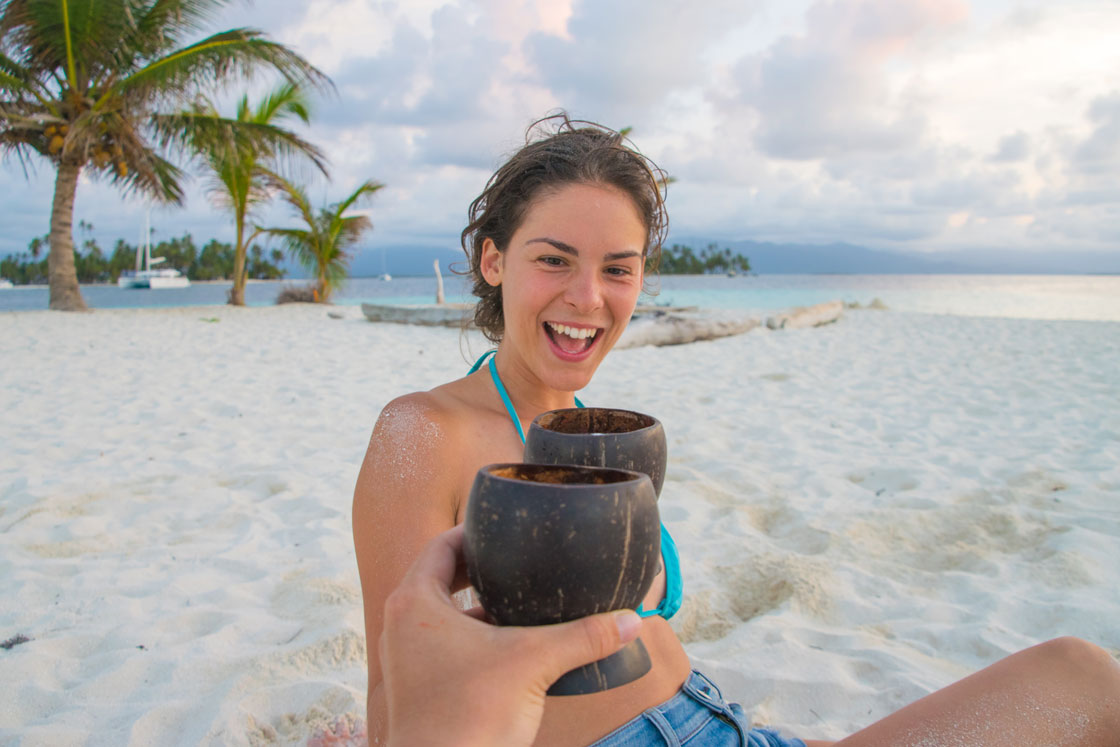
Enough theory:
How do we practice responsible tourism on the San Blas Islands?
Rather than spending any longer talking about the problems of irresponsible tourism (which can be a little depressing) or the theory behind responsible tourism, it’s time to get down to the practicalities of how we practice responsible tourism — how we ensure that our business and our customers’ activities on the San Blas Archipelago have a positive effect on the islands and their inhabitants.
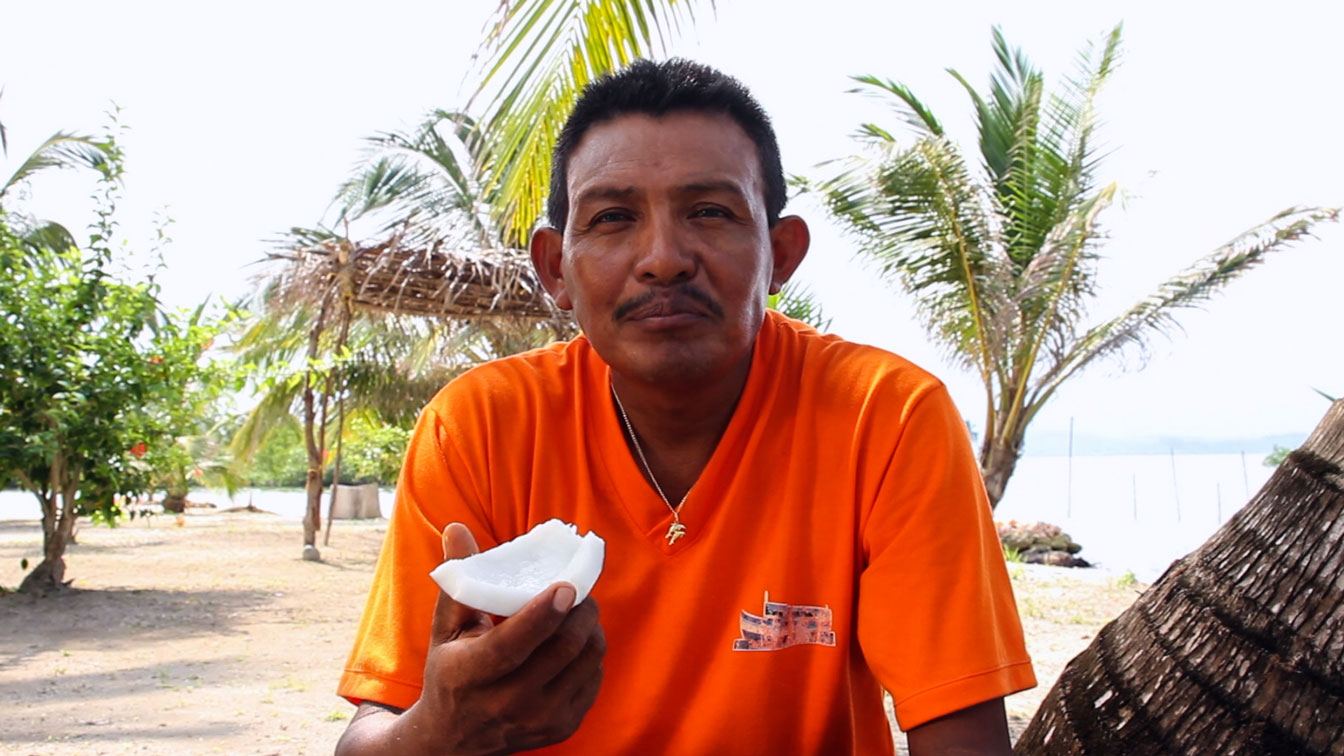
We build relationships with the local people
The indigenous people living on the San Blas Islands are called the Kuna. They have been on the islands for a very long time and have a rich history and culture that we admire and respect. The people at San Blas Adventures have spent years talking to the locals, getting to know them and asking for their input. We want to know if there’s anything tourists do that bothers them so that we can brief the groups of people we bring on our San Blas island-hopping trips.
We also want our customers to meet the locals as we feel that meeting the Kuna is meaningful part of any authentic visit to San Blas. The relationships we’ve formed with the locals allow us to bring our guests to parts of the islands that other companies can’t (or simply don’t know about).
However, while it’s important for our guests to meet the Kuna, we also believe it’s important to not overstay our welcome or for our presence to become obtrusive. This involves a certain level of cultural sensitivity and good communication skills. We make sure our activities are as unobtrusive as possible and we always encourage the locals to come to us if they have any problems.

We ensure the Kuna profit from us and our customers
It’s absolutely essential that the local people make money from us and all of the visitors who come to the San Blas Islands. Building relationships is important, but ensuring that a fair portion of the profit made from tourism in the San Blas Islands goes to its inhabitants feels like a no-brainer for us. We do this by paying the locals for their produce and their services, so it’s a business exchange, not a handout. Whereas most of our competitors make their guests sleep on sailboats at night, we stay in Kuna-made huts. We bring our guests to Kuna settlements, and we feed them with food bought from the Kuna. We also encourage our guests to buy drinks and other wares from them. We have negotiated fair rates for all of the services we receive from the Kuna and this is something we will always do.
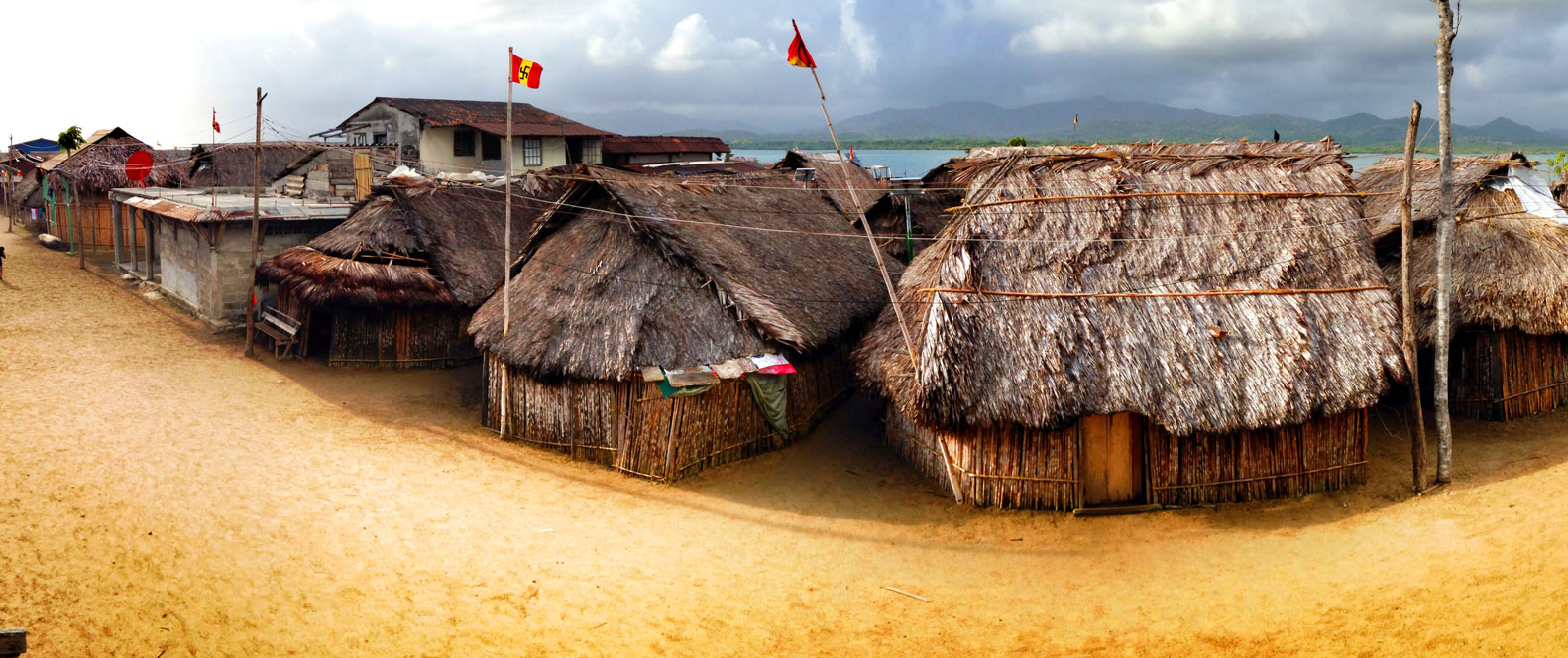
We run community projects with the Kuna
There can be benefits to being an outsider as we can bring a different perspective, knowledge, and skills to the Kuna. This is why we run community projects, helping the Kuna learn from us. The Kuna have formed a committee and they come to us when they have a new project they’d like our help on. We regularly provide the Kuna with the tools, resources, and intel they need to improve their quality of life. Given that they’ve welcomed us into their home
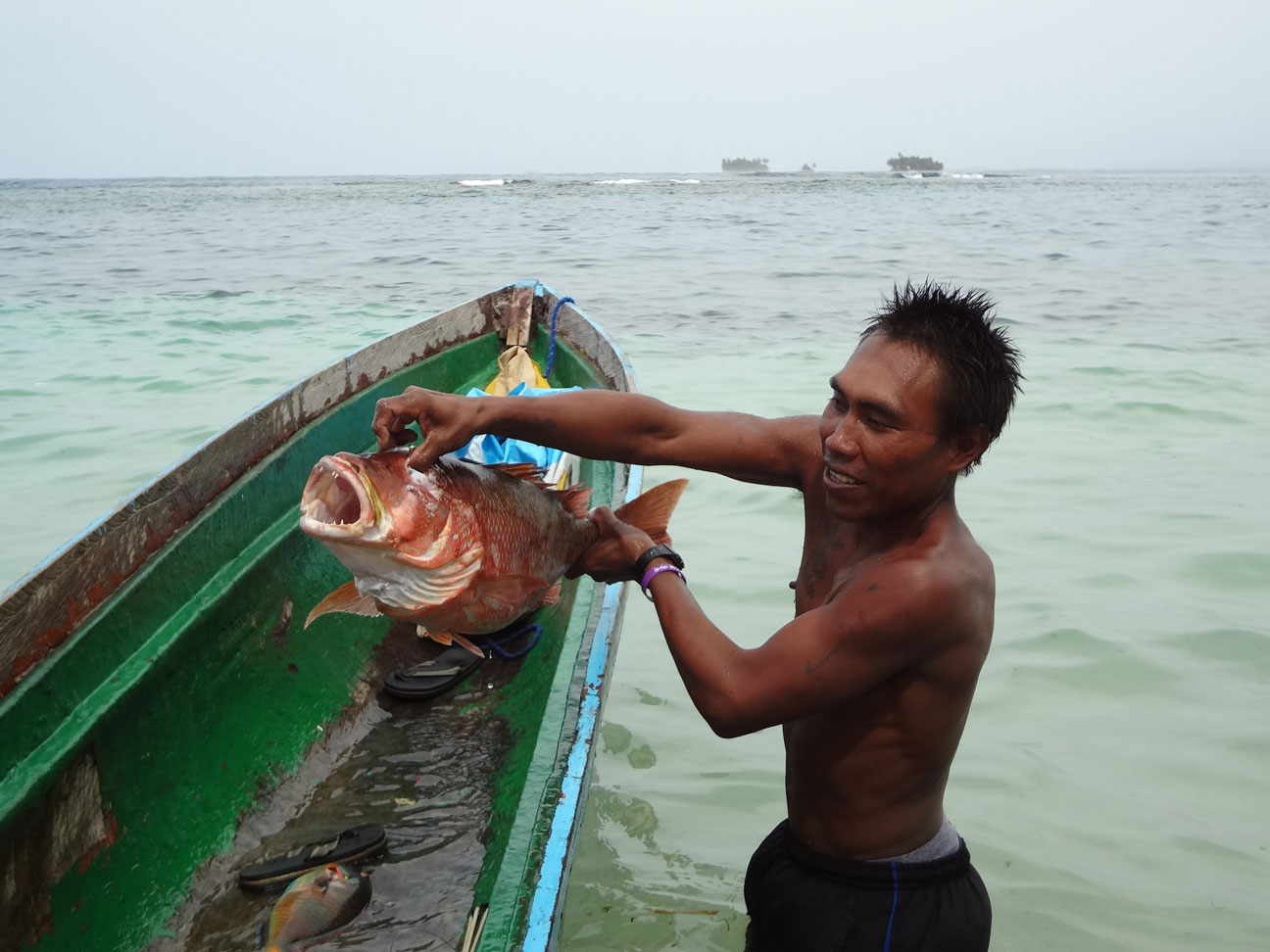
Local food: farming and fishing
We want to buy food from the Kuna, to help their economy grow and to help support them in a long-term, sustainable way. For this reason, we are in the process of organising farming training and resources for any locals who have expressed an interest in growing their own food. And while the island-dwelling locals need zero help fishing, we make sure to buy fish from them on a regular basis, ensuring their fishermen receive a fair price for their catch.

Responsible approach to waste and recycling
There is no centralised waste disposal system in the San Blas Islands and there can be
some similar infrastructural problems. As such, we are very careful about the impact we
have on the environment. We are careful about the amount of plastic we bring with us and
we take all of our waste with us.
We will always improve our responsible tourism practices, allowing them to evolve over time. We hope anyone reading this blog has learned lots about responsible tourism and why some companies (like us) are putting so much time and money into it. Ultimately, we wouldn’t exist as a business if the San Blas Archipelago wasn’t such a paradise, and we want to do everything we can to ensure they stay that way. It’s good for us, it’s good for our customers, and it’s good for the local communities. If you’d like to know more about our island-hopping experiences, check out our Panama to Colombia and our Colombia to Panama San Blas trips!

